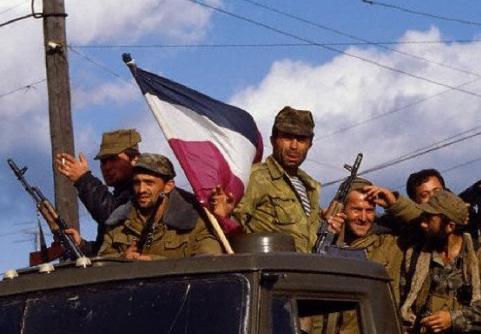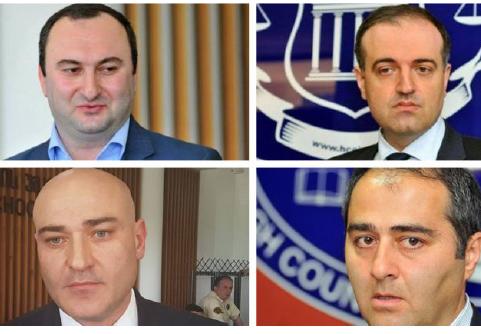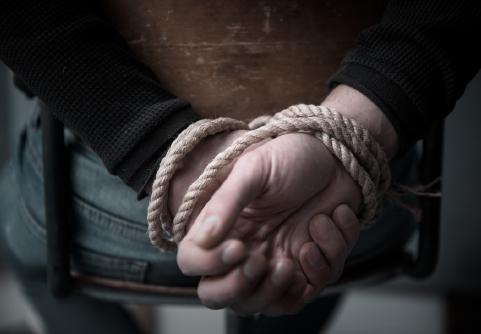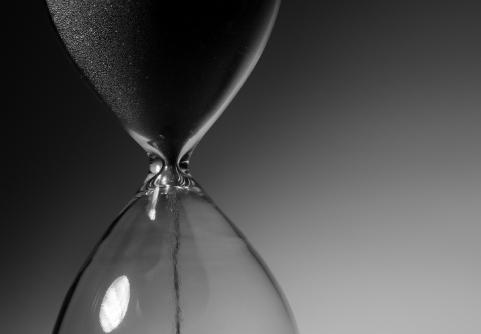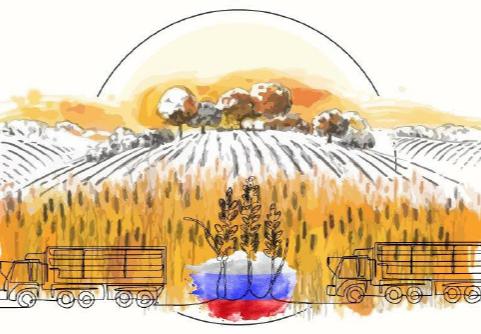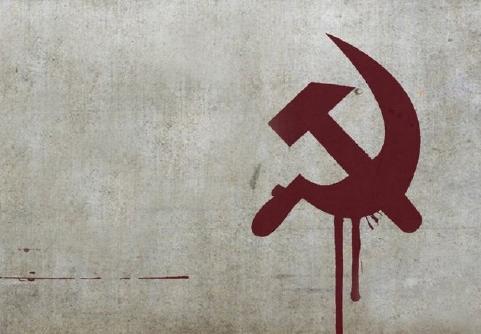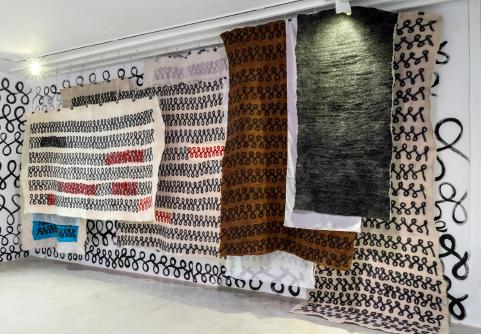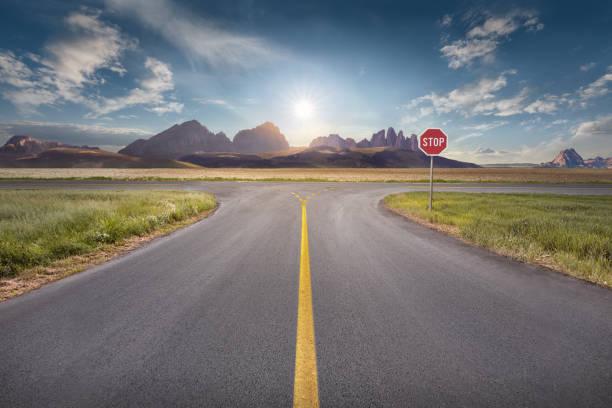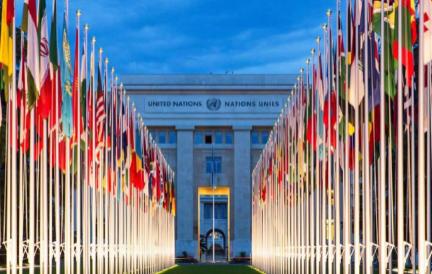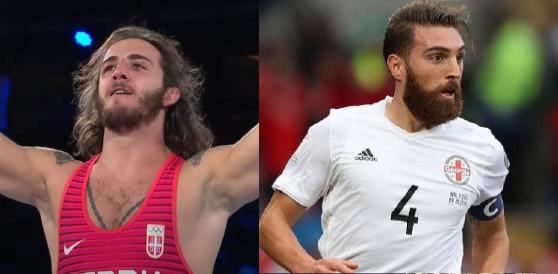Author : Stefan Tolz
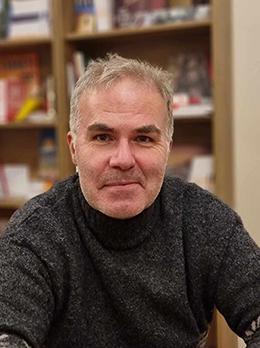
- Thank you so much for agreeing to this interview! Let’s start at the beginning: how did you end up in Georgia?
When I was 15, I went to America to study for a year. Since then I have travelled to many countries, exploring different cultures and lifestyles. I developed a strong interest in learning about new countries and their people. Perhaps this interest influenced my decision. I enrolled in the directing department of the Munich Film School.
While at the film school, I had a colleague who had received a scholarship to study in Moscow. I also wanted to experience life in this huge “red world” on the right side of the map. I was curious to know what was going on in this empire of evil, what it was like, and it didn’t really matter whether it was the Soviet Union or one of the Eastern Bloc countries.
I enrolled in a Russian language course and won a one-year scholarship. Initially, I was set on going to the Moscow Film Institute, but I met a teacher who was well-versed in Soviet cinema. When I shared my decision with him, he posed a crucial question: did I want to study cinema or actually make movies? I responded that I wanted to make movies. He then advised me, “If you want to make movies, go to Georgia. In Moscow, they only care about foreign currency.”
That’s how I ended up in Tbilisi in 1990 during Zviad Gamsakhurdia’s presidency. At that point, I knew very little about Georgia, except that “Dinamo” Tbilisi had won in Düsseldorf. I visited a theatre institute to inquire about the schedule of the Russian language sector, and Gogi Dolidze, the dean of the film faculty, responded in English, “My dear friend, we don’t have any lessons in Russian, but you’re going to have a very good time in Georgia.”
Indeed, that time was truly unforgettable. I was the first Western student at the Film Department of the Theatre Institute. This period brought a great achievement for me, because it was here that my so-called “film soul”, my “film language”, matured. Here I learnt to do what I love, to make films, everything related to cinema and most importantly - why it is so important what a person will leave to future generations in this field. I learnt all this thanks to my relationship with Rezo Gabriadze. I often had the pleasure of visiting his family. We drank tea and talked a lot about cinema. My professor in the field of documentary film was Mr Gia Chubabria. At that time I also had the privilege of getting to know your great film directors: Tengiz Abuladze, Eldar Shengelaya, Temur Babluani, the film artist Dima Eristavi and others. The relationship with these people, of course, had a great impact on me.
I was a member of a minority who came from the West and knew everything about the events of that time, who loved Georgia. I perceived all the events and considered myself an interpreter of the events, who had to convey everything in the language of cinema. The fact that it is so close to you and you are a part of it obliges you to describe everything and preserve it for future generations. Someone will pass it on through a book, but I will pass on all these accumulated stories through a film.
- You live in the house of Vakhushti Kotetishvili and you are personally connected to this place...
Mr Vakhushti Kotetishvili was the protagonist of my first film, which I made in 1990-91. I then created a portrait of Georgia based on the stories of six people I met during my studies. I gathered them around a table, where Mr Vakhushti was the tamada (you know what kind of a toastmaster he was) ... The title of the film was “Caucasian Feast”. That was the beginning of my career in Georgian cinema.
Then there was the film “On the Edge of Time: Male Domains in the Caucasus.” (2001), depicting the world of people living outside of time at the turn of the century. This film won the Golden Gate Award in San Francisco and the Grand Prix at the Taiwan International Film Festival.
Then there was the film “Full Speed Westward” (2013). I started making the film in 2011, when Nicolas Sarkozy visited Georgia. It was the day Bidzina Ivanishvili publicly announced that he was going into politics. At that time you could see the following picture: Bidzina Ivanishvili had a separate fortress on the right bank, Mikheil Saakashvili had a presidential palace on the left bank, with the Mtkvari River running down the middle.
It was a perfect scenario for a fairy tale. That was when I decided to make a film. With the help of my Volga-21, which in the film is a symbol of the old Soviet Union, I try to show, together with the characters of the film, Georgia on its way in search of its future.
It was a very labour-intensive process. I worked on the film for three years. The film won an award in Chicago and was screened all over the world. I think the current processes also demonstrate the relevance of that film. A trilingual version of these three films called “Georgian Trilogy” was released in DVD format in cooperation with Bakur Sulakauri publishing house and is still available in shops.
- Let’s move on to the subject of Anaklia. How did you become interested in Anaklia Port? Where did the idea come from, did Mamuka Khazaradze and Badri Japaridze come to you, did you hear about the project and get interested? What sparked your interest in the subject?
When I was working on the film “Full Speed Westward” in 2012, I filmed several novellas about entrepreneurs - businessmen with a Western orientation. One of them was Mamuka Khazaradze. He talked about the projects he was working on with his associates. At that time, the Green City was being built on Lisi. I have known him ever since. These novellas are published on the website called Volga Salon.
So when I heard that there was such a big project, I got interested immediately, because for such a small country as Georgia, such a port would of course be of great importance, and I thought that if Mamuka Khazaradze won such a tender, it would be very interesting to film the process. I met Badri Japaridze and asked him to talk to Mamuka Khazaradze and his partners, to tell him that I wanted to start a film project, because I thought that Anaklia was a really important project for the future of Georgia. However, if I were to produce such a film, I should have the right to see everything from the inside, to film everything I consider important for the film and to show the whole picture, and not to limit myself to press conferences. We agreed on this, but in the course of the work it turned out to be very difficult and sometimes impossible. The camera crew was not allowed to film many things or go to certain places. It was very difficult, especially in cases when I was with them, but didn’t have the chance to film.
What was happening in the country was not just an economic issue, it was about politics as well. I was not looking at it as a German, Stefan, just living in Georgia, I was observing people’s emotions, the feedback was important to me, it was important to understand what this political situation meant for the citizens of Georgia.
I visited Anaklia for the first time in 2017. As soon as the project started, I started filming. On this small example, on the example of the development of this village, we wanted to show what the Chinese are doing, what is happening in the world, what Russia is doing, that was the main idea at the beginning. The whole film with its complex themes was very interesting for me. What is important in the film is that it tells not only the story of Mamuka Khazaradze, we also have the character of Katy, a modern young woman with a European vision, we have Nugzar Gabelia, a resident of Anaklia, a family of refugees from Abkhazia. We tried to show how the processes that were taking place affected the country and the heroes of our film. The filming took five years. It was definitely one of the most difficult projects for me in every respect.
- And yet, why was this port not built? The government asserts that Mamuka and Badri failed to attract any money, and claim that this is a legal issue with its own rules and procedures. In your perspective – coming from someone who not only observed everything through the lens of a film director during the filming process but also witnessed the unfolding events on the ground – what happened?
First and foremost, it must be emphasized that to undertake the construction of such a port, assembling a proficient team is imperative. A team with formidable individuals is necessary to secure the required funding and international support. At the project’s commencement, with Giorgi Kvirikashvili as the Prime Minister, it appeared that influential figures were steering this endeavor. When initiating a project of this magnitude, effective public relations play a crucial role in garnering funds. While not the sole determinant, it remains a significant factor. When seeking international funding, the project’s image must be robust, accompanied by positive news that resonates with the public.
When Giorgi Kvirikashvili suddenly left the position of Prime Minister, and the investigation
When Giorgi Kvirikashvili suddenly left the post of Prime Minister and after the initiation of the investigation into the money laundering case against Khazaradze-Japaridze was publicly announced, this process was closely watched in the West. I’m not an expert on this, but
there were claims that it was not a case of money laundering but rather a form of black PR, which, despite the eventual absence of confirmation for the money laundering accusation, had a detrimental impact on the Anaklia project. The uncertainty surrounding the investigation instilled fear among potential investors, affecting the project’s progress.
- To the best of our recollection, the National Bank, prosecutor’s office, the judiciary, and executive authorities were all actively engaged in this process, publicly asserting that the project was unprofitable and that consortium members would not be able to generate revenue from it. This concerted effort seemed like a coordinated attack on the project. If the Anaklia port had been constructed, it could have served as a stark contrast – similar to the dichotomy between East Berlin and West Berlin – illustrating the disparities between the territory occupied by Russia and the rest of free Georgia. The envisioned “shining” city surrounding the major port would have operated in close proximity to the occupation zone.
It was to be a major port operating near the occupation zone, around which a “shining” city was to be built. Who was interested in the failure of the Anaklia project? What explanations have arisen from the film?
The idea was that this project should have been financed by the private sector and not by the state, because the state does not have that much money, but when Prime Minister Kvirikashvili left and when banks and investors started asking questions, it turned out that they needed some guarantees. This is what Mamuka is talking about. International banks need the state to undertake some commitments. We know that the tender was held with the participation of 12 consortia. Not 2, but 12. All of them withdrew from the tender because the state refused to issue guarantees. It is difficult to say why the state should not want to realise this project, what could be the reason...
The first conceivable reason could be that, in their assessment, it was deemed a suboptimal bid, leading them to express regret in halting the project while stating a genuine desire for its continuation. Various challenges such as economic concerns, job creation, and other factors were acknowledged. However, providing guarantees at that stage was deemed unfeasible due to the potential for exacerbating existing problems.
The second reason could have been that there was someone behind it who did not want this project to be implemented. Or perhaps there was someone who did not want Mamuka Khazaradze to implement it with his partners.
The third potential reason could be linked to the interest of Bidzina Ivanishvili and Irakli Gharibashvili in the Port of Poti. During my visit to the Port of Poti, I observed a substantial area earmarked for the construction of a container terminal – a sizable expanse. I also spoke to one of the representatives of Maersk, who said that the cargo does not leave this port and more than half of the containers are empty, and they enter through the entrance, but do not leave.Maersk argued that, at present, there was no imperative to construct a new port. According to their representative, if there were a noticeable increase in cargo, it would be financially self-sustaining, eliminating the need for financial support from Georgia’s budget. They expressed willingness to undertake the construction independently once cargo volumes justified it. Subsequently, they initiated the paperwork to proceed. However, counter to regional expectations, political representatives of Poti opposed the endeavor.
It is now known that Bidzina Ivanishvili himself and the company that controls the Poti economic zone have their own interests. Of course, this is very important. This is the third possible reason: those who are behind the port of Poti did not want the port of Anaklia to be built.
However, when war broke out in Ukraine, it became clear that if Georgia had a good infrastructure, it would be a extremely valuable port strategically.
- Even before the war in Ukraine, Mamuka Khazaradze posited that the halting of the project might align with a direct Russian objective. According to his perspective, the project was stopped on the instructions of Russia to avoid undermining Russian interests. In essence, Anaklia was seen not as a competitor to Poti but as a potential rival to Russian ports. This viewpoint was echoed by American officials, who emphasized that the Anaklia project held not only economic significance but also geopolitical importance for Georgia and the West.
This was expressed during Prime Minister Mamuka Bakhtadze’s visit to Washington.... This point of view is also presented in the film, but time will show what in reality was behind it. In this film I have presented dry factual information and events. It may be obvious from the film that I am neither an economist nor a lawyer, I am just interested in important and interesting processes happening in the country and I am trying to bring these stories to people through the film so that they see what is really happening.
- The European television premiere of the film “The Port That Never Was” occurred on the French-German channel ARTE, followed by a screening at the Tbilisi International Film Festival. However, it is essential for a broader audience, both in Georgia and internationally, to have the opportunity to view it. What steps do you plan to take to achieve this goal?
I believe that the most suitable approach would be to have the film broadcast on a public television channel, serving as a neutral platform. Public television’s role is to present content that is intriguing to the public, particularly when handled by an independent third party. Following the broadcast, an hour-long discussion involving ministers could provide valuable insights into the accurate or inaccurate portrayal of such a crucial stage and events in Georgia.
As mentioned earlier, I have a positive collaboration with a public channel on various projects. Given the involvement of German public television and the German-French channel ARTE in this film, the first channel stands as our primary partner and holds the initial right to broadcast. If, for any reason, they opt not to air it, we can explore discussions with alternative channels.
In my view, it is preferable for this film to reach a few thousand viewers on public television, fostering a neutral audience, rather than being confined to a sharply “opposition” or “pro-government” viewership. The film aims to ignite a spark that encourages people to reconsider events, fostering a critical assessment. I am hesitant to have the film showcased on any government or opposition channel. My hope is that a public channel will eventually acquire and present the film to a broader audience.
In general, the best format for showing such films is the cinema, because there the viewer is not distracted as when watching at home, and all attention is directed to the film. The Goethe Institute was ready to sponsor this screening, but the Georgian film distribution company refused. For example, “”Full Speed Westward” had a successful run in cinemas for six weeks, offering audiences the chance to watch it in both English and Georgian, fostering an environment where viewers could form their own opinions about the film.
In our industry, the first window is cinemas, the second window is streaming video – Netflix and similar online platforms where you pay to watch, and then there is television, which is free. This right is granted to television under licence and the last one is the possibility to watch online for free. Of course, we can release this film through the Kavea Plus online cinema, which is the last resort for anyone who wants to see the film online. However, as a producer who has invested money in this project, I want to export and sell this film abroad, in the international market, in Sweden, America... and if this film is shown online somewhere, it certainly reduces the chance of presenting it at the festival. It also reduces the chance that foreign TV stations will buy it. With this film, I want to show people in America what they don’t know about Georgia, show people in Sweden what they haven’t heard about. Maybe they know about the Sukhishvili and have seen documentaries about Georgia and its beautiful nature, but they don’t know what’s really happening in the country. They will learn much about politics with this movie.
- Are you already working on a new project?
Yes, I am currently involved in two projects simultaneously: a documentary and a feature film. The concept for the feature film originated many years ago, conceived by myself and my friend Lasha Bakradze. The film unfolds within a single setting, the shop “Waters,” serving as a communal space for residents and visitors of Tbilisi. Behind the shop lies a laboratory where the Master of Water and his descendants craft the magical waters that played a role in both the creation and downfall of the Soviet Union.
This fairy-tale film explores the notion that the entire history of the Soviet Union was shaped within the confines of this small shop. It suggests that the elixirs produced in this laboratory contributed to the Soviet Union’s victory in World War II – featuring creations like space water. However, the film’s central theme revolves around the water of happiness, a concoction that the protagonist aspires to create. My objective is for this film to become a trademark of Tbilisi, like the French film “Amelie” has become for Paris.
Regarding the documentary, it revolves around Soviet lemonades, drawing inspiration from the story of Harry Truman gifting Stalin 100 bottles of Coca-Cola in 1952 to showcase the excellence of American lemonade. Although Coca-Cola was well-received, Stalin expressed the need for better lemonade, leading to the summoning of Mitrofane Lagidze, the master of beverages, to Moscow. His task was to create the world’s finest lemonade.
This story has achieved a legendary status, documented in books about Lagidze, although its authenticity has not been verified. Our film retraces the narrative, with filming taking place in Tbilisi, Moscow, America, and beyond. The film’s central question revolves around the potential impact on Georgia if the lemonades crafted by Mitrofane Lagidze, the creator of these recipes, had gained widespread popularity. If Lagidze water, instead of Coca-Cola, had became a global sensation, simply saying “I am from Georgia” would no longer prompt the question: “Where from?” This beverage, akin to the world’s finest lemonade, would emerge as a symbol of Georgia’s vibrant and diverse cultural identity.
- Thank you very much for the interview, We wish you success!
